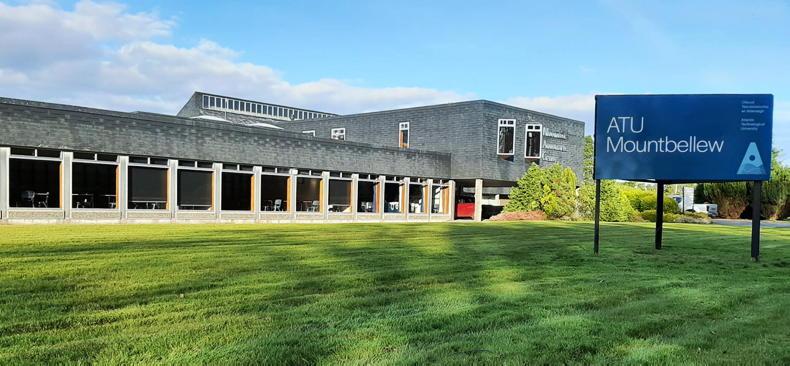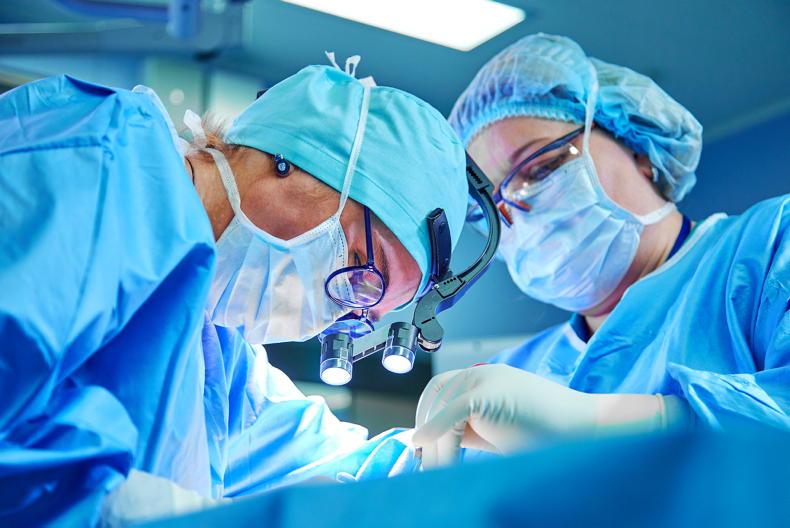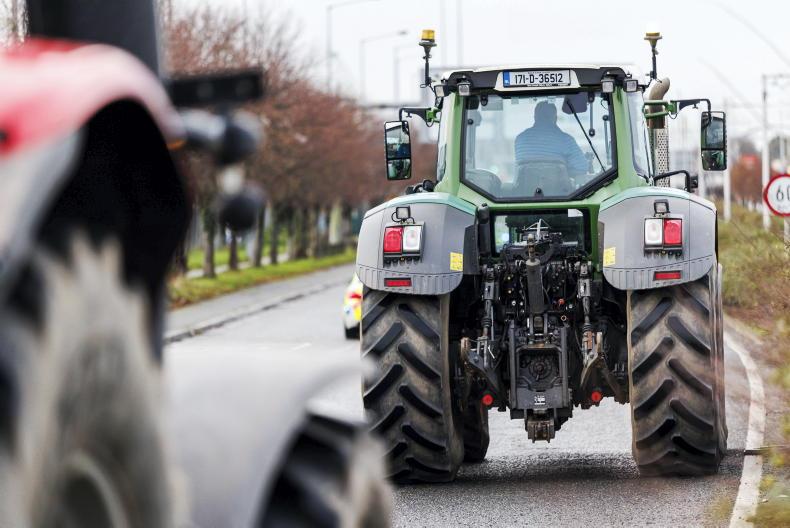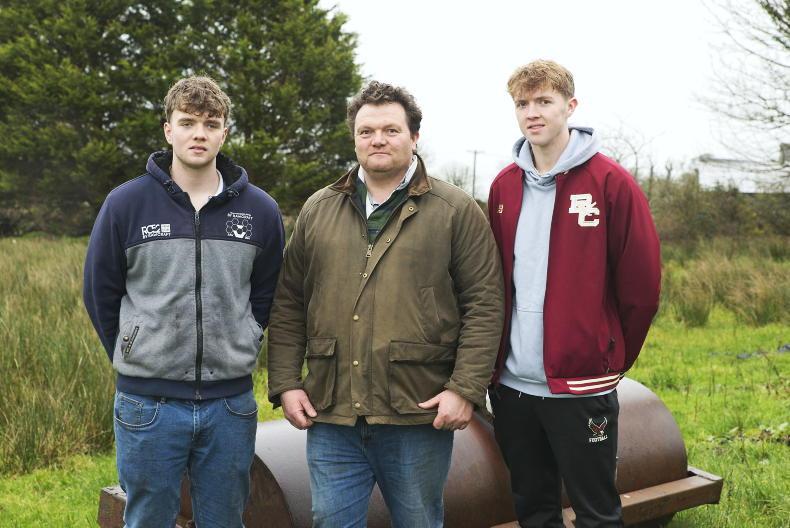Now that Ireland’s five new technological universities have been established, you’re likely going to be seeing some changes in CAO lists, course codes and college names. Confusing? Not if you have all of the facts.
For the month of July, ICL will be providing the need-to-know practical information on our technological universities, as well as discussing new programmes, approaches and the benefits these universities will bring to their regions.
We are starting our series with the university with the furthest geographical reach – Atlantic Technological University (ATU).
New kid on the block
ATU was officially established earlier this year, on 1 April, 2022. It is now one of Ireland’s largest universities and spans a region roughly the size of Wales – from Galway City all the way to Letterkenny in Co Donegal.
ATU, and all of our other new technological universities, were created on the recommendations of the National Strategy for Higher Education to 2030. ATU’s President, Dr Orla Flynn, tells ICL that, originally, three technological colleges came together (Donegal, Sligo and Galway) to get the ball rolling once the national strategy’s recommendations were released.
Originally, this group was called the Connact-Ulster Alliance, but it eventually changed to Atlantic Technological University.
Coming together
“I started as president of GMIT in March 2020 and at that time there had been good progress made - we had come together for research, we had working groups established looking at corporate services and the registrars and academic affairs areas.
“The pandemic hit and, in a way, that was a good enabler for us because suddenly the geographical distance didn’t matter - we were all working online anyway; it meant we could meet regularly,” she continues. “We were very productive during that period of time.”
Now that they’re established, Orla says the biggest challenge ATU faces is coming together with a unified approach; both in terms of corporate services and within their academic areas.
“However,” she adds, “I think we’ll see the quickest wins in terms of research, postgraduate offerings and collaboration in external projects.”
Changing needs
Decades ago, when technical colleges were being developed, they were created to meet the current needs of the region. Industries were different, as were the in-demand careers of the time. Orla explains that the technological universities were also created in response to the current needs of their region.
“[For example], hospitality will always be a strong part of our region, but we also want to ensure a quality of life – we’re trying to retain and attract talent, we need our region to be a culturally rich, vibrant place where you can live and raise a family and feel part of something really alive.”
ATU Mountbellew
Dr Edna Curley is head of centre at ATU Mountbellew, which is the oldest agricultural college in Ireland (having been first established in 1905). She says their main stakeholders are Teagasc and ATU.
“With Teagasc, we’re dealing with our further education programmes - our level 5, level 6 – [which are] what we would usually recognise as the Green Cert programmes,” she explains. “Then, we have our level 7, 8 and - into the future - 9 and 10 with ATU.
Our students coming in here as a level 5 learner can progress right through the system to level 5 and 6 with us 7, 8 and if they so wish level 9 and 10 with ATU.”
Ag courses
Through Mountbellew, ATU will be offering several agricultural science and management programmes.
These include levels 7 and 8 in both an Agriculture BSc (Bachelor of Science) and Agricultural Engineering, and a level 7 and 8 in Agriculture and Environmental Management.
Enda believes their approach to agricultural education differs slightly as it’s hands-on, holistic and takes focus on sustainability and effective communication.
“[We’ve always taken an approach to] holistic learning,” she explains. “It probably comes from our patrons being the Franciscan brothers. Their ethos was the holistic approach to education – mind, body and spirit.
Everyone was entitled to an education, but it wasn’t just formal education – it was a much broader component of what education means to a young man or woman coming in to us.”
Edna believes that when it comes to agricultural development in Ireland and abroad, diversity is our greatest strength and she aims to increase the diversity of Mountbellew in the coming years.
“For example, the difference it makes to have young women in our groups and how it opens up the conversation,” she says.
“If there’s anything I want to do in the next year or two it’s to encourage more of our young women in ag - who play such a huge part in everything we do every day - into our college and right through our system; they bring such a rich offering to the college.”
For more information visit atu.ie
Which colleges have combined to create this university?
- Letterkenny Institute of Technology (now called ATU Donegal Letterkenny).
- Letterkenny Institute of Technology – Killybegs Campus (now called ATU Donegal Killybegs)
- Institute of Technology Sligo (now called ATU Sligo)
- Galway Mayo Institute of Technology (GMIT) – Mayo Campus (now called ATU Mayo)
- Galway Mayo Institute of Technology (GMIT) – Dublin Road campus (now called ATU Galway City)
- Galway Mayo Institute of Technology (GMIT) – Cluain Mhuire (now called ATU Galway City)
- Galway Mayo Institute of Technology (GMIT) – Letterfrack Campus (now called ATU Connemara)
- Mountbellew Agricultural College (now called ATU Mountbellew)
*St Angela’s College, while not yet formally an ATU campus, will be in the coming months and will be known as ATU Sligo St Angela’s.
Available courses:
ATU offers over 600 academic programmes with certification levels ranging from pre-degree to doctorate. They are delivered on-campus, online or in a blended approach.
Accommodation:
Across its campuses, ATU offers near-campus accommodation for nearly 3,000 students.
Student population:
Over 20,000 learners across the eight campuses
Read more
A diverse Masters programme with Macra Agricultural Skillnet and UCD
Microsoft and Maynooth University bring digital wealth
Now that Ireland’s five new technological universities have been established, you’re likely going to be seeing some changes in CAO lists, course codes and college names. Confusing? Not if you have all of the facts.
For the month of July, ICL will be providing the need-to-know practical information on our technological universities, as well as discussing new programmes, approaches and the benefits these universities will bring to their regions.
We are starting our series with the university with the furthest geographical reach – Atlantic Technological University (ATU).
New kid on the block
ATU was officially established earlier this year, on 1 April, 2022. It is now one of Ireland’s largest universities and spans a region roughly the size of Wales – from Galway City all the way to Letterkenny in Co Donegal.
ATU, and all of our other new technological universities, were created on the recommendations of the National Strategy for Higher Education to 2030. ATU’s President, Dr Orla Flynn, tells ICL that, originally, three technological colleges came together (Donegal, Sligo and Galway) to get the ball rolling once the national strategy’s recommendations were released.
Originally, this group was called the Connact-Ulster Alliance, but it eventually changed to Atlantic Technological University.
Coming together
“I started as president of GMIT in March 2020 and at that time there had been good progress made - we had come together for research, we had working groups established looking at corporate services and the registrars and academic affairs areas.
“The pandemic hit and, in a way, that was a good enabler for us because suddenly the geographical distance didn’t matter - we were all working online anyway; it meant we could meet regularly,” she continues. “We were very productive during that period of time.”
Now that they’re established, Orla says the biggest challenge ATU faces is coming together with a unified approach; both in terms of corporate services and within their academic areas.
“However,” she adds, “I think we’ll see the quickest wins in terms of research, postgraduate offerings and collaboration in external projects.”
Changing needs
Decades ago, when technical colleges were being developed, they were created to meet the current needs of the region. Industries were different, as were the in-demand careers of the time. Orla explains that the technological universities were also created in response to the current needs of their region.
“[For example], hospitality will always be a strong part of our region, but we also want to ensure a quality of life – we’re trying to retain and attract talent, we need our region to be a culturally rich, vibrant place where you can live and raise a family and feel part of something really alive.”
ATU Mountbellew
Dr Edna Curley is head of centre at ATU Mountbellew, which is the oldest agricultural college in Ireland (having been first established in 1905). She says their main stakeholders are Teagasc and ATU.
“With Teagasc, we’re dealing with our further education programmes - our level 5, level 6 – [which are] what we would usually recognise as the Green Cert programmes,” she explains. “Then, we have our level 7, 8 and - into the future - 9 and 10 with ATU.
Our students coming in here as a level 5 learner can progress right through the system to level 5 and 6 with us 7, 8 and if they so wish level 9 and 10 with ATU.”
Ag courses
Through Mountbellew, ATU will be offering several agricultural science and management programmes.
These include levels 7 and 8 in both an Agriculture BSc (Bachelor of Science) and Agricultural Engineering, and a level 7 and 8 in Agriculture and Environmental Management.
Enda believes their approach to agricultural education differs slightly as it’s hands-on, holistic and takes focus on sustainability and effective communication.
“[We’ve always taken an approach to] holistic learning,” she explains. “It probably comes from our patrons being the Franciscan brothers. Their ethos was the holistic approach to education – mind, body and spirit.
Everyone was entitled to an education, but it wasn’t just formal education – it was a much broader component of what education means to a young man or woman coming in to us.”
Edna believes that when it comes to agricultural development in Ireland and abroad, diversity is our greatest strength and she aims to increase the diversity of Mountbellew in the coming years.
“For example, the difference it makes to have young women in our groups and how it opens up the conversation,” she says.
“If there’s anything I want to do in the next year or two it’s to encourage more of our young women in ag - who play such a huge part in everything we do every day - into our college and right through our system; they bring such a rich offering to the college.”
For more information visit atu.ie
Which colleges have combined to create this university?
- Letterkenny Institute of Technology (now called ATU Donegal Letterkenny).
- Letterkenny Institute of Technology – Killybegs Campus (now called ATU Donegal Killybegs)
- Institute of Technology Sligo (now called ATU Sligo)
- Galway Mayo Institute of Technology (GMIT) – Mayo Campus (now called ATU Mayo)
- Galway Mayo Institute of Technology (GMIT) – Dublin Road campus (now called ATU Galway City)
- Galway Mayo Institute of Technology (GMIT) – Cluain Mhuire (now called ATU Galway City)
- Galway Mayo Institute of Technology (GMIT) – Letterfrack Campus (now called ATU Connemara)
- Mountbellew Agricultural College (now called ATU Mountbellew)
*St Angela’s College, while not yet formally an ATU campus, will be in the coming months and will be known as ATU Sligo St Angela’s.
Available courses:
ATU offers over 600 academic programmes with certification levels ranging from pre-degree to doctorate. They are delivered on-campus, online or in a blended approach.
Accommodation:
Across its campuses, ATU offers near-campus accommodation for nearly 3,000 students.
Student population:
Over 20,000 learners across the eight campuses
Read more
A diverse Masters programme with Macra Agricultural Skillnet and UCD
Microsoft and Maynooth University bring digital wealth









SHARING OPTIONS